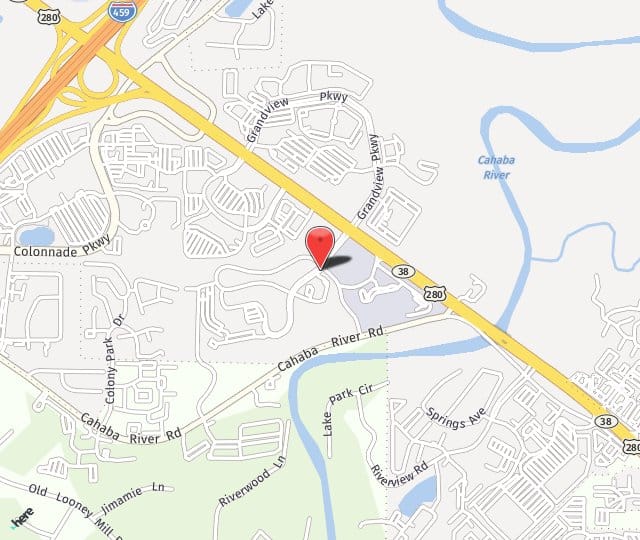What is Atrial Flutter?
Typical atrial flutter (AFL) results from a single “short-circuit” in the right atrium. This short-circuit causes the atria to beat at about 300 beats per minute while the lower chamber of the heart (the ventricles) beat at a slower rate (often 75 to 150 beats per minute).

Like atrial fibrillation, atrial flutter occurs most commonly in elderly patients and those with other types of heart disease. It also can cause a wide variety of symptoms and increase the risk of developing a stroke. Treatment options include various types of medications as well as catheter ablation, which cures the problem in most patients. Less commonly, a patient may have atypical atrial flutter which results from a short circuit in an unusual location like the left atrium or near scar tissue.
What causes AFL?
The heart beats in response to an electrical signal that originates in the sinus node, a grouping of cells that live in the upper right chamber of the heart (right atrium). After leaving the right atrium, this electrical signal travels to the left atrium where both chambers are instructed to pump blood into the right and left ventricles, the lower chambers of the heart.
The signal then slows briefly in the atrioventricular node to allow the lower heart chambers to fill with blood. It then passes through the ventricles to prompt the flow of blood out of the heart to the body.
Normally, the heart beats 60 to 100 times per minute. Sometimes, the electrical signal becomes stuck on repeat in the right atrium. This increases the heart rate up to 300 beats per minute.
There are several factors that increase the risk of developing an atrial flutter. These include:
- Diabetes
- High blood pressure
- Lung disease, including emphysema
- Congenital heart disease
- Congestive heart failure
- History of heart attack or heart surgery
- Rheumatic valve disease
- Alcoholism
- Thyroid disease
What does Atrial Flutter feel like?
A person who is experiencing atrial flutter may experience no symptoms at all, or may feel as though “something isn’t right.” Patients with this heart rhythm problem often report that they frequently feel fatigued and have no energy. When they do engage in physical activity, they quickly feel short of breath.

Symptoms of Atrial Flutter
Rapid heart rate may be the most obvious symptom of atrial flutter. Additional signs include:
- Heart palpitations, a sensation of fluttering or heart pounding
- Chest tightness or pain
- Low blood pressure
- Lightheadedness, dizziness, or fainting
- Fatigue
- Shortness of breath
Atrial Flutter vs Atrial Fibrillation
These two conditions often coincide as they share various clinical factors such as prior heart surgery or heart disease, stress, hypertension, and other physical conditions. There are two important ways in which atrial flutter and atrial fibrillation differ:
- Fibrillating atria beat at a very rapid pace, resulting in quivering without full contraction.
- Fibrillation occurs in a highly-irregular rhythm.
- Fluttering atria beat fast but in a regular rhythm.
Treatment for Atrial Flutter
The objective of treatment for atrial flutter revolves around slowing the heart rate and bringing the heart into a natural rhythm directed by the sinus node. This may be achieved with:
- Medication. Several heart medications, such as beta-blockers, have been developed to address atrial flutter and fibrillation. Some medications thin the blood, thereby reducing the risk of blood clots, some promote a normal sinus rhythm.
- Electrical cardioversion may be performed to convert the hearts abnormal rhythm to normal sinus rhythm.
- Radiofrequency ablation may be recommended for the conversion of abnormal rhythm to normal sinus rhythm.
"Dr. Smith performed an ablation on my mom after months of getting the runaround from other doctors. He heard her case, understood how desperately she needed her procedure, and wasted no time helping her. His bedside manner is calm and reassuring, and his compassion is so tangible. Many, many thanks to Dr. Smith and his group for taking such immediate and thorough care of my mother during her health struggles!"
Ablation Therapy for Atrial Flutter
How serious is AFL?
Because atrial flutter prevents the full contraction of the atria, the ventricles do not receive the full amount of blood needed. Slower-moving blood may stagnate in one of the chambers or blood vessels of the heart, allowing blood clots to form. Blood clots may dislodge and travel to the brain or body, causing an event such as a stroke. The insufficient movement of blood through the heart also deprives the body of essential oxygenation and nutrients, which could ultimately lead to heart failure.
AFL can also cause atrial fibrillation, which is the most common type of abnormal heart rhythm.
Can you prevent Atrial Flutter?
Studies suggest that atrial flutter, like all heart disease, is largely affected by lifestyle habits including tobacco and alcohol consumption, sleep, stress, and diet and exercise habits. Therefore, patients who are interested in decreasing their risk for cardiac conditions and events like atrial flutter are encouraged to develop habits that support heart health. These include eating a heart-healthy diet that is low in sodium and also low in sugar. Regular exercise, even moderate walking several days a week, provides cardiovascular benefits by increasing heart rate and moving blood more quickly through the body. Exercise is also a valuable stress-management strategy that can elevate good hormones and decrease stress hormones such as cortisol.
Schedule a Consultation
If you experience any of the above symptoms, you may be suffering from atrial flutter. Call 205-971-7566 to schedule a consultation with Dr. Macy C. Smith. Macy C. Smith, Jr., MD, FACC, FHRS serves Birmingham, Alabama and surrounding areas.

